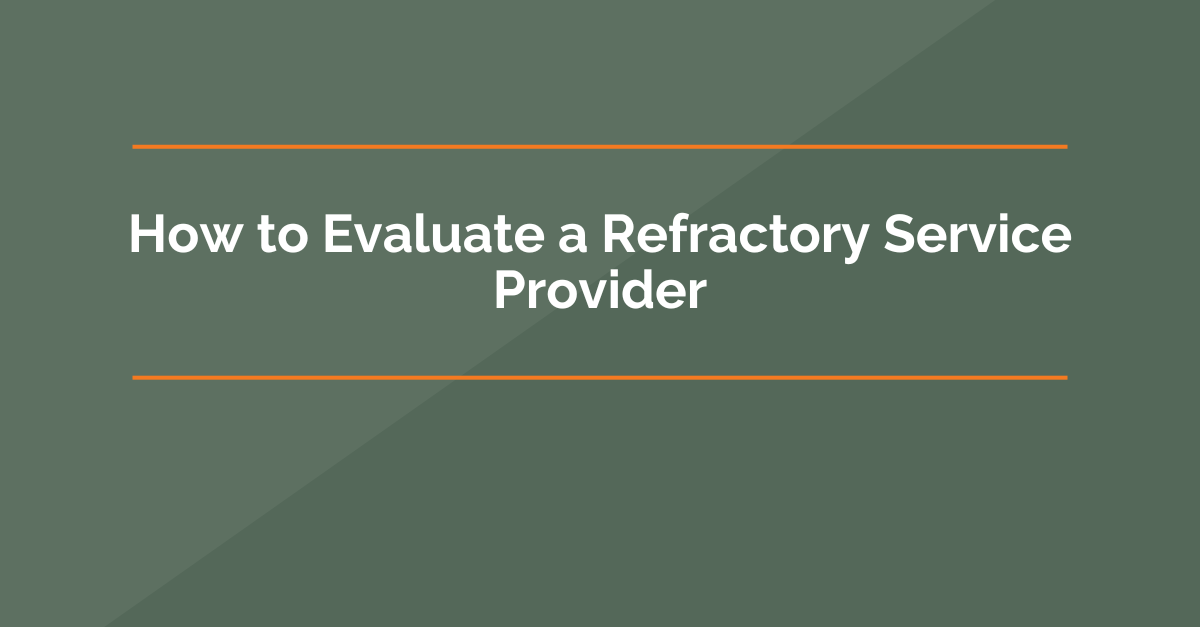8 Critical Questions to Ask
When it comes to refractory work, not all providers are created equal. In high-temperature, high-risk environments like furnaces, kilns, and smelters, poor workmanship isn’t just expensive—it’s dangerous. That’s why choosing the right refractory service provider is more than a procurement decision; it’s a matter of safety, performance, and long-term reliability.
Here are seven critical questions to ask when evaluating a refractory contractor:
- What is their safety track record? Safety should be a non-negotiable. Ask about MSHA recordables and whether the company has internal safety protocols that go beyond the minimum requirements. Do they hold regular safety trainings? Are crews certified to operate specialized equipment like Brokk demolition robots?
- Do they have a structured QA/QC process? Quality Assurance and Quality Control shouldn’t be afterthoughts. Look for a provider with documented QA/QC procedures at every stage—from material selection to post-installation inspections. Ask about their process for verifying anchor placement, cure times, and dry-out specifications.
- How experienced is the field crew? Refractory materials are only as good as the hands that install them. An experienced crew can mean the difference between a six-month repair and a multi-year solution. Ask about average crew tenure, training programs, and whether lead technicians have experience with the specific applications your site requires.
- How involved is your contractor in the planning Phase? A contractor should be heavily involved in the planning phase. Their insights into materials, timelines, and logistics often uncover challenges or cost-saving opportunities before work begins. Ask your contractor: “What potential obstacles do you foresee?” “Can you recommend material alternatives that might save time or money?” and “How should we structure the schedule to avoid delays?” A collaborative approach leads to more accurate estimates, smoother execution, and fewer surprises down the road.
- Do they offer a wide range of installation methods? Not all projects are the same, and neither are installation methods. A good provider should offer a range of application types—brick, gunite, shotcrete, plastic ram, form-and-pour—and be able to recommend what’s best for your specific operation, not just what they’re most comfortable with.
- Are they equipped for both planned and emergency work? Downtime is costly. Whether you’re planning a scheduled outage or dealing with unexpected failure, your provider should be ready to mobilize fast with the right materials, crew, and equipment. Ask about their typical response times, what kind of equipment that have and where it comes from, and whether they maintain an inventory or rely on third parties. This will allow you to gauge timing.
- Can they support metal repair, fabrication, and related services? Refractory repairs often overlap with mechanical work—steel replacement, burner system overhauls, air cannon installs, etc. Working with a provider who can handle both refractory and related services ensures a more streamlined and cost-effective turnaround.
- Do they bring engineering insight and ongoing support? Top-tier providers don’t just install materials—they solve problems. Look for a team that can assist with material selection, thermal modeling, design improvements, and long-term performance tracking. Engineering-backed support is especially critical for high-wear areas and complex builds.
Why It Matters
Choosing the right refractory partner is about more than ticking boxes. It’s about trust—trust that the crew will follow every safety protocol, every QA checklist, and every engineering spec without shortcuts.
That’s the standard Elite Refractory is built on. With a proven safety record, highly trained field teams, and full-service capabilities ranging from Brokk demolition to steel repair and precast design, Elite delivers dependable performance in the most demanding industrial environments. Whether you’re planning a major shutdown or need emergency support, we’re here to help you do it right—the first time. Contact our team today to get in touch.

